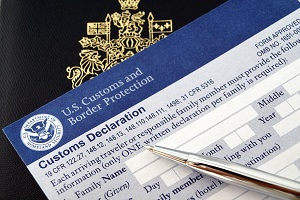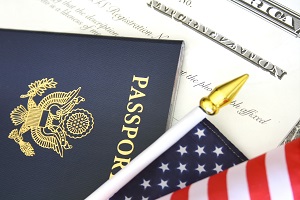Learn About New Immigration Waiver Reforms
”El Show Sin Fronteras”
Spanish Video Above Translated In English Below
Immigration Waiver
There are at least 10.5 million undocumented people in the United States according to a 2017 study.
This number represents 23 percent of the foreign-born population, the population that is currently resident in the country.
Undocumented immigrants in the United States have been in the country for an average of 15 years, and they have most of their family members who are not undocumented.
An immigration waiver is a process that may be undertaken by immigrants voluntarily or involuntarily for having violated U.S. immigration law.
Individuals may also apply for this waiver for an alien who has been deported, removed, or found inadmissible to the United States.
The immigrant receives a penalty or punishment, and after the time of the punishment in their case, they can legally enter for a certain period.
Important News For Immigration & Permanent Bars
The change we received last week is based on the lawsuit that a non-profit organization filed against the immigration service, that organization is called the Northwest Immigrant Rights Project.
It is a very good organization that has made many demands to protect the immigrant community for many years.
This lawsuit is focused on the immigration part of the bars, which are the three and ten-year immigration penalties.
What the law says is that those bars apply to people who are present in the United States without a permit, they apply to someone who is here after entering without a Visa, or after entering with a Visa after their permit has expired, and if they stay more than six months in the United States without a permit, those people are going to carry a three-year penalty.

The law used to say that you had to leave the U.S. and wait outside the U.S. before you could adjust your immigration status or return for three years, but for someone who had been out of the country for more than a year without permission, you had to wait outside the country for ten years.
There are waivers available for this type of bar of three and ten years, but not everyone qualifies for that type of waiver.
The change now is that those three years of the bar or ten years of punishment can pass when the person is inside the United States, that’s the change.
Who Can Benefit From This Change?
For example, a person who entered the United States with their Tourist Visa used it to come and go constantly, once overstayed their Visa because they were working or did not want to leave, stayed two years after their Visa expired, left, and then crossed again with their valid Visa.
Now, her son was born in the United States, is 21 years old, and wants to petition his mother who is the person who entered the country on his Tourist Visa.
Our advice to her is that unfortunately she had been in the U.S. without permission, and had the 10-year penalty before making her second Visa entry, that mother is not going to be able to fix her immigration status because a waiver is needed for that type of penalty, and she cannot base that waiver on her U.S. citizen child, she needs a spouse or a parent to be able to receive the waiver.
There are many people in this situation who have been present without permission, and even if they have a legal entry they cannot adjust their immigration status because a waiver is needed in their case.
Now with this change, since she already spent those ten years in the United States, she will be able to adjust her permanent resident status without needing a waiver, she is a type of person who can benefit from this new change.
Individuals who qualified for a waiver based on their relationship with their spouse or parent may now request a refund of their waiver, from the fee they paid to immigration, a waiver is no longer required if the person has spent ten years or three years in the United States since entering the country.
The first entry did not have to be with a Visa, it could be someone who entered without a Visa, had an unpermitted presence in the U.S., left, then obtained an H-2B Visa, B1 Visa, or Student Visa, if that person had presence without permission after a lawful entry or without permission, now their time in the United States counts toward their punishment.
Immigrants & U.S. Born Children
We always talk about people who have U.S.-born children, who are about to turn 21 and want to adjust their immigration status through them.
We have had to tell parents who entered without a Visa that there is no way to adjust their immigration status if they did not enter with a Visa if their child has not served in the military, if they have not suffered violence, or if they no one has asked them before 2001.
We are talking about another part of this type of case.
A parent who last entered the U.S. on their Visa has a child who is turning 21 or older, they want to adjust their immigration status for their child, but before their last entry, they had an unlawful presence in the U.S. with two or more entries.
The first entry was unlawful, without permission, and a waiver is needed for that type of presence without permission but the waiver you need can only be obtained if you have a spouse, or parent, who is a citizen, or permanent resident.
Most of the parents who are being petitioned by their children do not have parents or spouses with U.S. residency because they would normally have arranged for them, their parents, or their spouse.
Normally, parents who are adjusting their immigration status for their children only have their children as relatives in the United States with legal status, they may also have other relatives such as a spouse or a parent, but it is unusual if a parent wants to be petitioned for their child in the United States.
Those families will not need a waiver if they have had three or ten years in the United States thanks to this new law.
Can People With Residency Apply For A Waiver From Their Family?

Someone who has a spouse with residency or citizenship could apply for a waiver for presence without permission, but it is possible that his mother (depending on her history of entries and time in the U.S.) will not need a waiver based on this change.
For example, if you stayed more than a year without permission, left, and ten years have passed since your departure, it does not matter now if those ten years were spent in Mexico or here in the United States, it is not necessary to ask for a waiver for that presence without permission, that is the important change.
If she needs a waiver and her husband is a resident, he could serve as a relative for this type of waiver.
Petition, Marriage & Waiver
If you are a person who entered the U.S. illegally and are married to a U.S. citizen, you still need a waiver, and depending on that person’s history, you will have to process it through the Consulate.
This change in the law that we are discussing is going to affect people with their last entry Visas to the United States, that is the group that will be most affected.
Instead, that person is still going to have to make their case through the Consulate, and probably ask for a waiver but there are always exceptions about how you can stop that Consular Process if someone was petitioned before 2001 or if you have suffered violence or abuse in your marriage if your spouse has served in the armed forces.
If you or someone else entered the United States without a Visa, it is worth consulting directly with Lincoln-Goldfinch Law – Abogados de Inmigración to find out if there are no other exceptions to adjust your immigration status without leaving the country.
In case you have additional questions about your bar, waiver, or your specific case, you can contact us at (855) 502-0555. After a short 10 minute evaluation of your case over the phone, we will let you know what options you have. You can also follow us on our social networks so you won’t miss our weekly broadcasts via Facebook, YouTube & Twitch.
Frequently Asked Questions About Changes In Immigration Waiver
Contact A U.S. Immigration Attorney Today!
Categories
How To Find Us
What Our Clients Say
“This Lawfirm is great, very professional and helpful. I love that they are always in communication and always available for when you have questions . 100% recommended by me and my family. Thank you Lincoln-Goldfinch Law – Abogados de Inmigración”





